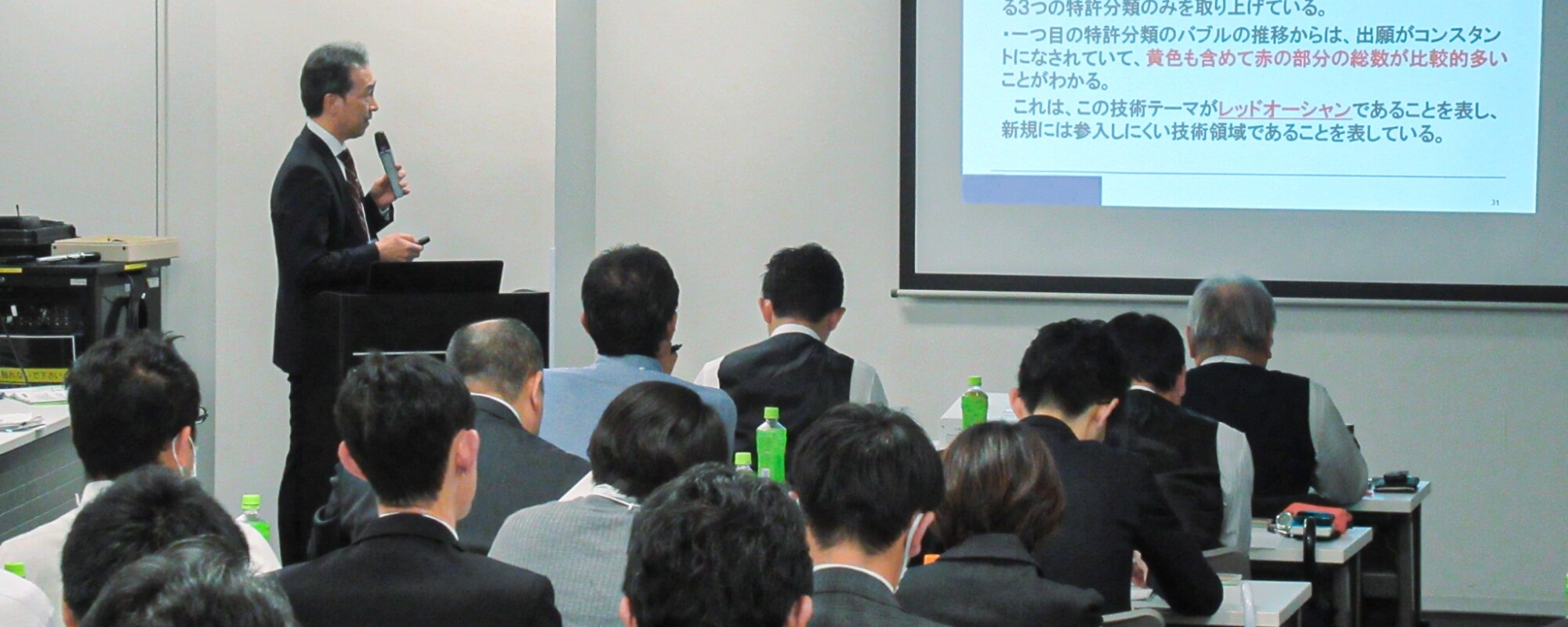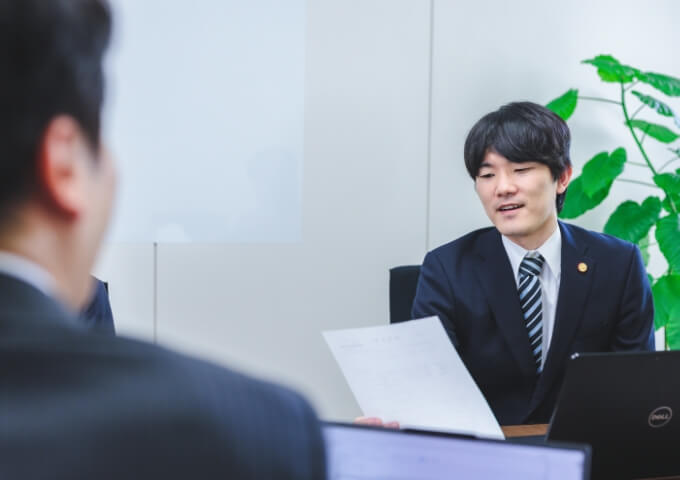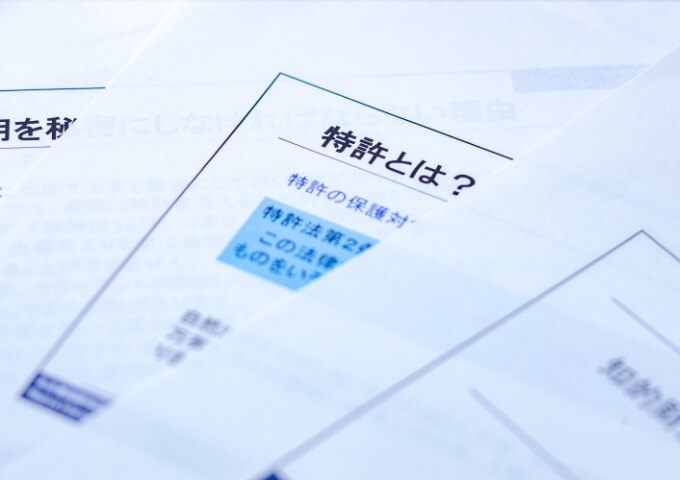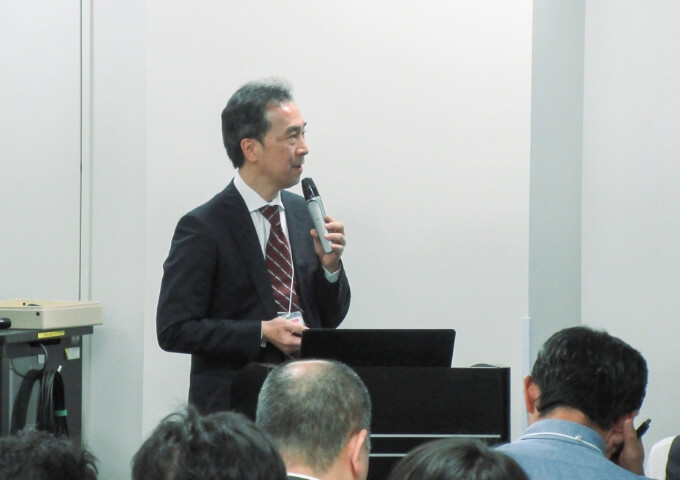DISTINCTIVE
CHARACTERISTICS

We Nagoya International IP Firm provide education and training services regarding intellectual properties in Japan to companies having difficulty in providing their staff in IP department and other departments with sufficient international IP education due to lack of manpower in their IP department or other circumstances. Contents of our education and training program are customized depending on the type of work participants are involved and their levels of knowledge, which we learn through an initial hearing session where we inquire about challenges or concerns that our client company is facing. Thus, participants can take a tailor-made IP education and training course.
For participants' better understanding of training contents, our lecturers conduct training sessions with interesting topics including case studies of our client company and of its competitors. Where needed, participants are asked to work on exercises on their session theme and receive feedbacks on the results of the tasks from our patent and trademark attorneys with extensive experience in supporting clients to protect and exploit their IP rights.
We offer flexible program settings to meet your various needs: "We want pre-session assignments and review tests prepared for our training", "We want to have online training sessions", and so on. If you have any requests, please let us know.
IP EDUCATION
AND
TRAINING THEMES
Themes of our IP Education & Training programs range from the basics of the Japanese intellectual property system to strategies to increase the possibility for acquiring IP rights in Japan, prevention measures to avoid infringing a right of a competitor, what are IP strategies consistent with company business strategies, and so on. They are useful for making a strong IP department and raising the knowledge standards in other departments at your company about the Japanese intellectual property system.
Training in Patent, Utility Model, Design, and Trademark in Japan (mainly for IP department staff)
This program is intended for IP department employees (including administrative assistants) to learn the overview of the Japanese intellectual property system, including patent, utility model, design, and trademark, and the essential points in the practice.
If you would like to learn the overview of patent, utility model, design, and trademark systems in Japan, there are three courses available divided into filing applications, examination, and registration sections. Attending these courses help attendees to grasp useful points in each procedural phase.
Or, if you would like to learn the essential points in the patent, utility model, design, and trademark practices in Japan, we provide a course where the practices are explained with reference to examination guidelines and example court rulings in your desired field.
We can customize the course details depending on your training purpose.
Of course, target attendees of this program may be non-IP department staff members. We can flexibly adapt the training details depending on the purpose of training, the knowledge level of participants, and the field of work participants are involved.
Key Points of IP Issues to Note in Research and Development Projects (mainly for R&D staff)
This program is intended for staff in research and development (R&D) department to learn the key points of intellectual property issues in Japan that should be noted before and after starting R&D projects.
Participants are explained about, for example, what to note in order to successfully pursue their development projects while avoiding infringing IP rights in Japan owned by competitors, what should be researched, what to keep in mind when referring to technologies of competitors, how to read official gazettes published by the JPO, and what to note when working on joint R&D projects with Japanese companies.
Participants learn the key points of IP issues in Japan that should be noted in order to implement strategic R&D projects.
Examples of Past Training Programs
- Theme
- Practice for AI-related inventions in Japan
- Training contents
- Explanation regarding future importance of considering AI-related inventions in the technical fields of attendees' company.
- Remarks
- Both IP department staff and development personnel participated in this program.
- Theme
- Practice for business-related inventions in Japan
- Training contents
- Explanation regarding future importance of considering business-related inventions in the technical fields of the client company.
- Remarks
- Both IP department staff and development personnel participated in this program.
- Theme
- Techniques to develop new technologies and inventions from Japanese patent information
- Training contents
- Explanation regarding how to read official gazettes based on actual examples of patents and the key points to increase patentability.
- Remarks
- Mainly development personnel participated in this program.
(This program was held for groups of 50 to 100 participants)
Essential points for patentability and key points of patent strategies in Japan (for IP and R&D departments staff)
This program is intended for IP and R&D departments staff to learn the key points in the Japanese patent practice based on the examination guidelines such as novelty and inventive step. The purpose of this program is to acquire a level of knowledge based on which participants are aware of the key points to determine, when they create new ideas, whether these ideas possess patentability, and able to make rough assessment of their ideas. Participants learn the key points in the examination guidelines and perspectives of JPO examiners when they conduct examination.
Participants are also explained with actual examples about decision making whether they should acquire rights to protect their ideas or should not file patent applications to keep the ideas confidential in order to protect them. In some cases, it is favorable in a business strategy point of view to keep ideas secret. It is, thus, very beneficial to staff not only in IP department but also in R&D department to learn through this program the key points in patent strategies, such as the points to keep in mind in such cases and measures to prevent competitors from acquiring patent rights of identical or similar ideas. We believe that this program is also useful to staff of non-Japanese companies having development bases in Japan.
Examples of Past Training Programs
- Theme
- Patent strategies specific to attendees' company
- Training contents
- Explanation regarding the characteristics of IP strategies based on the tendencies in the business fields of attendees' company.
- Remarks
- Both IP department staff and R&D department staff participated in this program.
- Theme
- Inventive step in the Japanese practice and the key points for effective responses to inventive-step based rejections
- Training contents
- Explanation regarding what to consider when filing applications based on the key points for responding to lack-of-inventive-step rejections.
- Remarks
- Both IP department staff and R&D department staff participated in this program.
Risks of infringing competitor’s right in Japan and measures for prevention and remedy (for staff in all departments)
Regardless of the legal fields, such as patent, design, trademark, and so on, inadvertently infringing a right owned by a competitor poses extremely serious risks. While your business is developing smoothly, if your company receives a letter from another company warning you "Stop manufacturing and selling your products" or "Compensate for past damages" and asked to respond to the letter, your company will suffer a large scale of damage in both economic and business continuity aspects.
As a matter of fact, it is not only manufacturers that are facing IP risks; companies in other business categories are likewise susceptible to IP risks such as design and trademark rights infringements. Thus, staff of these companies also need to understand risks of infringing a competitor's right. IP-related troubles can be prevented if those in sales and planning departments, for example, know about such risks. We believe that this program is also useful to staff of non-Japanese companies having development bases in Japan.
Examples of Past Training Programs
- Theme
- Prevention of patent infringement and measures for prevention and remedy (in Japan and other countries)
- Training contents
- Explanation regarding how to prevent infringement of competitors' patent rights and measures for prevention and remedy. Attorney-Client Privilege (US) was optionally covered in some courses.
- Remarks
- Both IP department staff and R&D department staff participated in this program.
- Theme
- Correct understanding of claims of a competitor's patent and workarounds to avoid the patent
- Training contents
- A Groupwork session on a patent application of the client company.
- Remarks
- R&D department staff participated in this program.
- Theme
- Design related rights (figurative trademark, design right, copyright, etc.)
- Training contents
- Explanation regarding the key points to keep in mind during daily sales activities.
- Remarks
- Sales representatives of apparel companies participated in this program.
(This program was held for groups of 100 participants.)
Other Training Programs
We also organized training programs on the following themes in addition to those introduced above.
Examples of Past Training Programs
- Theme
- Revised Design Act
- Training contents
- In-depth explanation regarding the key points and the background of the revisions in the revised Design Act.
- Remarks
- IP department staff participated in this program.
- Theme
- Practice of filing patent applications in Japan
- Training contents
- Explanation regarding the practice of filing Japanese patent applications in comparison with practices before the USPTO and the EPO.
- Remarks
- IP department staff participated in this program.
FLOW OF IP EDUCATION AND
TRAINING SERVICES
FLOW OF
IP EDUCATION
AND
TRAINING THEMES
-
01
Inquiry
Please contact us via email or using the form provided below in this website three months before the date and time of your program. In reply, we ask you brief questions about a general outline of your preferred training program and the type of work participants are involved, levels of their knowledge about intellectual properties, and so on.

-
02
Meeting
We further ask you detailed questions including the date and time that you wish to have your training session, the number of participants, the purpose of the training program, and other necessary information. Then we propose a training program suitable for the challenges and concerns your company is facing.

-
03
Preparation of a brief training plan
(approx. one week)*Based on your request at the meeting, we prepare a brief proposed plan for your training program and adjust the theme and details.

-
04
Preparation of detailed materials
(approx. one month)*We prepare materials to be used on the training day. The prepared materials are reviewed by your company, and, where needed, we make revisions to complete the materials.

-
05
Implementation of IP education &
training programWe implement the tailor-made IP education & training program, which is prepared to be well-suited for the challenges or concerns your company is facing, at your desired venue or using a Web meeting tool.

*The preparation period may be subjected to change depending on the contents and features of your desired training program.
